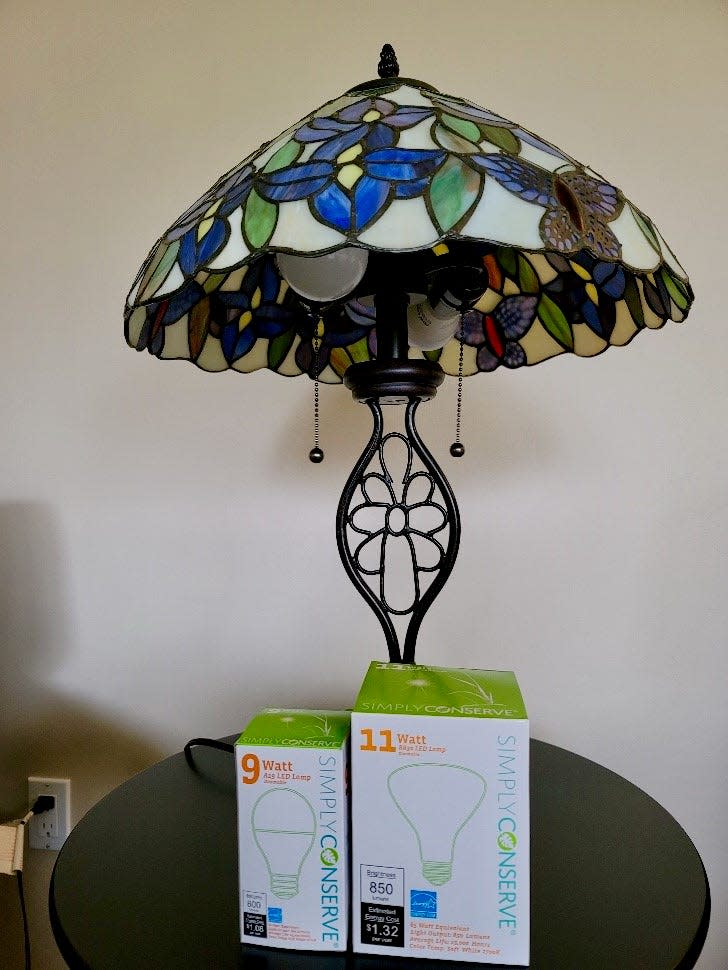MiSustainable Holland: It’s nearly ‘lights out’ for incandescent light bulbs
HOLLAND — As of Aug. 1, 2023, standard household incandescent light bulbs will no longer be sold at your local retailer.
In May 2022, the U.S. Department of Energy issued new energy efficiency standards for light bulbs. The new rule bans any bulbs that have a rating lower than 45 lumens per watt — meaning bulbs must now be able to produce more light using less energy.

Thankfully, this improved bulb technology has existed for years in the form of LED bulbs. The ban on inefficient light bulbs is expected to save the American public nearly $3 billion per year. It will also reduce carbon dioxide emissions by 222 million metric tons over 30 years.
The new rules will affect all standard household incandescent light bulbs — which have an average of 15 lumens per watt — and most halogen bulbs as well. The output of LED bulbs is often over 75 lumens per watt, meaning LEDs are more than five times more efficient at turning electricity into light.
Incandescent bulbs are inefficient energy wasters because most of the electricity they use doesn’t produce light at all, but instead produces heat. That’s how those classic toy Easy-Bake Ovens could cook food using only a light bulb.
But wasted heat from incandescent bulbs can also cause burns and even start house fires.
LED bulbs don't get that hot, because more of the electricity they use is directed at producing light, not heat, which is why they save you money and energy.
The updated standards put in place by the DOE can’t be met by most incandescent and halogen products currently on the market. That means there will be a major shift to LED products and a nearly complete phase-out of incandescent lighting products this year.
The DOE has given retailers time to sell out their current inventories. However, as of Aug. 1, 2023, you will no longer be able to buy standard household incandescent light bulbs at your local retailers. There are some exceptions for specialty bulbs, like heat lamps and bulbs for appliances.
Holland BPW has incentivized LED bulbs for years as a way to encourage electric customers to save money and energy. However, 2023 will likely be the last year that we offer residential light bulb rebates, since once LEDs are the only option to buy, those incentive dollars could be better used for other efficiency programs.
Subscribe:Receive unlimited access to your local news coverage
Thankfully, the cost of LED bulbs has come down significantly since we first started offering rebates, to the point that now many standard LED bulbs cost less than $1 apiece and last for more than five years.
Get out and take advantage of our rebates while you can. You can still go to greenprojectsgroup.com to complete a short sign-up to get up to 36 free LED bulbs delivered right to your door.
— Andrew Reynolds is the community energy services manager and Jennifer Soukhome is the community energy services specialist at the Holland Board of Public Works.
About This Series: MiSustainable Holland is a collection of community voices sharing updates about local sustainability initiatives. This Week’s Sustainability Framework Theme: Smart Energy: We need to use both conservation and efficiency measures to manage our resources to provide access to reliable and cost-effective energy.
This article originally appeared on The Holland Sentinel: MiSustainable Holland: It’s nearly ‘lights out’ for incandescent light bulbs

